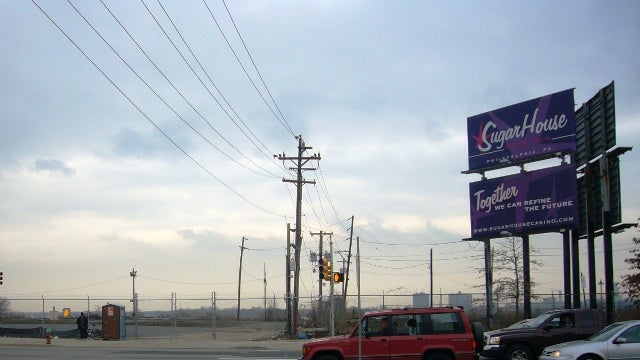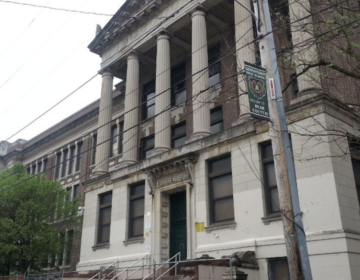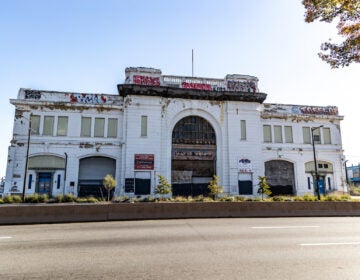Mystery on the Delaware

May 30
By Kellie Patrick Gates
For PlanPhilly
Turns out the Case of SugarHouse Casino’s On-then-Off Riparian License, now playing out in state Supreme Court, contains a bit of mystery.
It’s not a who-done-it. It’s a did-they-do-it?
What’s not mysterious: In the last weeks of former mayor John Street’s administration, Philadelphia’s Commerce Department granted SugarHouse a submerged lands license that allowed them to build into the bed of the Delaware River. But soon after Mayor Michael Nutter took office, his administration revoked the license, saying first that the process was flawed, and then that the City never had the right to issue the permit in the first place, since only the state legislature can do that. A cadre of local waterfront legislators agrees and they and City Council are together fighting SugarHouse’s assertion that they have a valid permit that the Nutter administration can’t revoke just because it doesn’t like it.
During April’s oral arguments before the Supreme Court, attorney Christopher Craig – Sen. Vince Fumo’s senate counsel – said that if the city ever had the right to issue such a permit for a project like SugarHouse, the legislature revoked that power with a 1978 law – the Dam Safety and Encroachments Act.
But SugarHouse lead attorney Stephen Cozen told the court that not only did the 1978 law leave Philadelphia with the power to grant submerged lands licenses, but the city has used the power and granted submerged lands permits – also called riparian rights -since then.
Here’s where the mystery comes in: No one has produced a copy of any of those licenses. And the court’s ultimate decision may rest in part on whether the justices believe they existed.
During his testimony, Cozen said they were destroyed in a fire. Former city solicitor Romulo Diaz wrote in a note to Councilman Frank DiCicco that “lots of licenses have been issued along the river since 1978, but because they were destroyed in a fire in the 1980s, he couldn’t locate them,” Cozen told the court.
Craig gave his testimony before Cozen did. While he was questioning Craig, Justice Seamus McCaffery said it was his understanding that 16 permits had been issued since 1978.
“The city has no record of any permits,” Craig told him.
Then on April 22, the City Solicitors office hand-delivered a letter to the Supreme Court’s deputy prothonotary, with more on the same topic. “There is nothing on the record even suggesting, let alone evincing, the issuance by the City of any riparian licenses after the enactment of the Dam Safety and Encroachments Act in 1978,” the letter reads. “Mr. Cozen’s suggestion at oral argument that he has heard “anecdotally” of some such license issuances has no support in the record and, to our knowledge, has no support in fact.”
PlanPhilly has been trying for weeks to talk to SugarHouse’s attorneys about the post-1978 submerged lands licenses and the fire that Cozen described during his Supreme Court testimony. Repeated calls to both Cozen and attorney Fred Jacoby were not returned, so PlanPhilly emailed questions for the legal team to SugarHouse spokeswoman Leigh Whitaker. How do they know that 16 permits were issued? How do they know about the fire? Is there a document or a person who could provide more details?
“We decline to comment on your questions as these issues are currently before the Supreme Court,” Whitaker wrote in an email. “We are anxiously awaiting the Court’s decision.”
SugarHouse needs a submerged lands license to build its casino project as planned on the Delaware Avenue property which it recently purchased. (Oral arguments were originally scheduled for May, but SugarHouse asked the court to expedite the proceeding so that it might know whether or not it had riparian rights before purchasing the land. That didn’t happen, but Whitaker said the casino had an agreement of sale with the former owner, so it had to honor its obligation.)
Brian Abernathy, spokesman for Councilman DiCicco, said former solicitor Diaz never wrote to or told DiCicco about a fire. Diaz and others in the Street legal department believed that post-1978 riparian permits had been issued, Abernathy said. “But they had no physical record of such permits,” he said, nor did anyone have first-hand knowledge of the permits. “I’m not certain how anyone could say they know something was done unless they had specific institutional knowledge or records,” he said.
Diaz could not be reached for comment, but in a November 2007 memo, he told DiCicco about a ledger book he has that contains licenses issued by the City from 1908 through 1968. He also attaches what he says is the most recent license found in the solicitor’s office’s files, dated July 1, 1974.
“We also have attempted to access later records of the Department of Commerce, but it appears such records either have been lost or misplaced since the Department of Commerce relocated its offices in the 1980s,” Diaz wrote.
Contact the reporter at kelliespatrick@gmail.com
WHYY is your source for fact-based, in-depth journalism and information. As a nonprofit organization, we rely on financial support from readers like you. Please give today.





